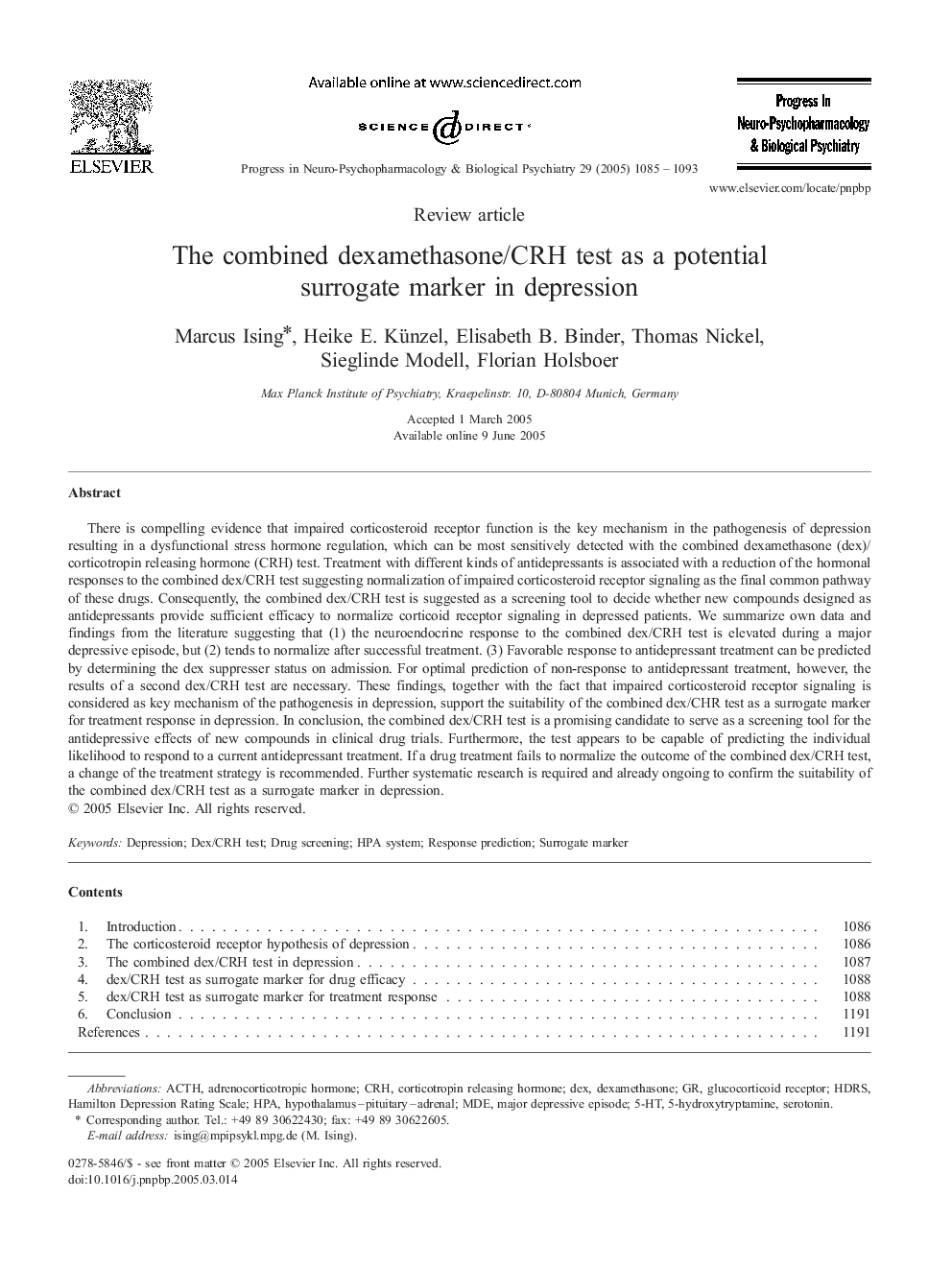| Article ID | Journal | Published Year | Pages | File Type |
|---|---|---|---|---|
| 9016308 | Progress in Neuro-Psychopharmacology and Biological Psychiatry | 2005 | 9 Pages |
Abstract
There is compelling evidence that impaired corticosteroid receptor function is the key mechanism in the pathogenesis of depression resulting in a dysfunctional stress hormone regulation, which can be most sensitively detected with the combined dexamethasone (dex)/corticotropin releasing hormone (CRH) test. Treatment with different kinds of antidepressants is associated with a reduction of the hormonal responses to the combined dex/CRH test suggesting normalization of impaired corticosteroid receptor signaling as the final common pathway of these drugs. Consequently, the combined dex/CRH test is suggested as a screening tool to decide whether new compounds designed as antidepressants provide sufficient efficacy to normalize corticoid receptor signaling in depressed patients. We summarize own data and findings from the literature suggesting that (1) the neuroendocrine response to the combined dex/CRH test is elevated during a major depressive episode, but (2) tends to normalize after successful treatment. (3) Favorable response to antidepressant treatment can be predicted by determining the dex suppresser status on admission. For optimal prediction of non-response to antidepressant treatment, however, the results of a second dex/CRH test are necessary. These findings, together with the fact that impaired corticosteroid receptor signaling is considered as key mechanism of the pathogenesis in depression, support the suitability of the combined dex/CHR test as a surrogate marker for treatment response in depression. In conclusion, the combined dex/CRH test is a promising candidate to serve as a screening tool for the antidepressive effects of new compounds in clinical drug trials. Furthermore, the test appears to be capable of predicting the individual likelihood to respond to a current antidepressant treatment. If a drug treatment fails to normalize the outcome of the combined dex/CRH test, a change of the treatment strategy is recommended. Further systematic research is required and already ongoing to confirm the suitability of the combined dex/CRH test as a surrogate marker in depression.
Keywords
5-HTACTHMDEHDRSDEXCRH5-hydroxytryptamine, serotoninDex/CRH testDepressionDexamethasoneHPA systemDrug screeningMajor depressive episodeHamilton Depression Rating ScaleHPASurrogate markeradrenocorticotropic hormonecorticotropin releasing hormonehypothalamus–pituitary–adrenalResponse predictionglucocorticoid receptor
Related Topics
Life Sciences
Neuroscience
Biological Psychiatry
Authors
Marcus Ising, Heike E. Künzel, Elisabeth B. Binder, Thomas Nickel, Sieglinde Modell, Florian Holsboer,
